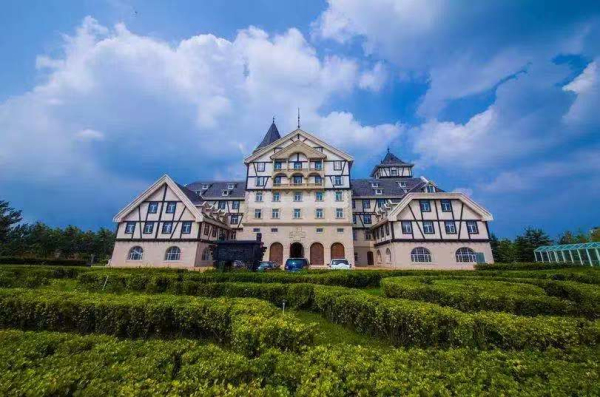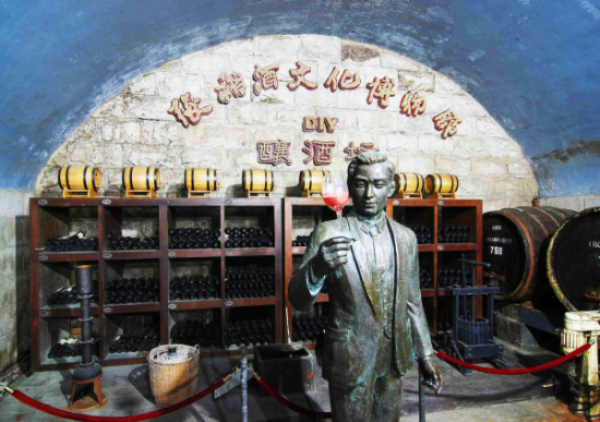Yantai, a winemaking powerhouse in China
(chinadaily.com.cn)| Updated : 2021-04-21
Print Print
Chateau Changyu Castle [Photo/WeChat account: ytwlgw]
The coastal city of Yantai, East China's Shandong province has gained a high reputation for its wine production because of its superior geographic location, climate, industrial resources and business environment.
According to the 2020 evaluation of Chinese wine brands, Yantai wine was the top regional brand that year with a combined brand value of 85.18 billion yuan ($13.04 billion). It also earned geographical indications (GIs) protection from the European Union after the bilateral agreement on GIs between China and the EU took effect in March 2021.
The Yantai wine industry has developed rapidly over the past 32 years to become one of the most renowned in China. The city currently has the largest winery and wine production area in the country, and is home to leading wine producers such as Changyu, Great Wall, Junding, and Grand Dragon.

Changyu Wine Culture Museum [Photo provided to chinadaily.com.cn]
Changyu Group, China's oldest maker of wine and brandy, was founded by diplomat Chang Bishi in 1892.
In 1894, Chang built the biggest wine cellar in Asia which was located less than 100 meters from the coast and a meter below sea level - this has served as a natural climate-control system that has not failed in over a century.
Today, the Grand Cellar and the old Changyu headquarters in downtown Yantai are open for tours as part of the Changyu Wine Culture Museum.
With a history of over 120 years, Changyu Group has grape growing areas spanning more than 16,000 hectares. It has also bought six overseas chateaux including Chateau Liversan in France and Australian wine producer Kilikanoon Wines Pty Ltd.
Chanyu was ranked first among the world's top 10 best-selling wine brands during a World's Best Selling Wine Brands Blind event in London in 2020.
Yantai has developed a vibrant secondary industry to support its wine production. The city presently has more than 10 cork manufacturers including Xiangfeng Industry Trade Co, which is the largest in China. Corks made in Yantai account for about 70 percent of the domestic market share.
In addition, the city has a complete wine production line that includes grape seedling, planting, pre-treatment, winemaking, filling, packaging, and transportation. Local authorities are currently planning to build a new industrial park for wine production that would help expand the reach of Yantai wines in overseas markets.

 Xi's Moments
Xi's Moments  Shandong gains remarkable results in promoting high-quality development
Shandong gains remarkable results in promoting high-quality development  2025 National Two Sessions
2025 National Two Sessions